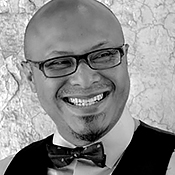About Emad Rahim
I am a genocide survivor of the Cambodian Killing Fields. I was born in a concentration camp, the same camp where my father was executed in and where my older brother died of starvation and illness. My family and I came to America as refugees in the early 80s. We were placed in Brooklyn NY during the height of the crack epidemic and when gang violence was at its peak. When I was 7 years old I walked into the cross fire of a drug deal gone wrong and was shot. Several years ago my life was turned into a short documentary called Against the Odd. The reaction that I received from many of my childhood friends, people that I consider family, coworkers and even people that mentored me throughout my life was astonishing. I realized that these people knew very little about my life, but through my story we were learning more about each other and thereby creating a more meaningful relationship.
Bio: Dr. Emad Rahim is an award-winning author, educator and entrepreneur. He currently serve as the Kotouc Endowed Chair at Bellevue University and JWMI Fellow at the Jack Welch Management Institute. He co-authored the book ‘Leading through Diversity: Transforming Managers into Effective Leaders’ and wrote the article ‘The Growing Epidemic of Islamophobia in America: Social Change through Appreciative Inquiry.’ His story was turned into a short documentary and incorporated into a theater production titled ‘Tales from the Salt City,’ which is an extension of the acclaimed Undesirable Elements series written by celebrated playwright, Ping Chong. He lives in Syracuse NY, loves coffee, foodie fanatic and is passionate with this thing called entrepreneurship. He has been featured in the Huffington Post, Forbes Magazine, IntelligentHQ, The Humanist and CEO Magazine.
Talk Description
Tell Me Your Story: Empathy to Combat Social Violence
Our stories are powerful tools that can be used to combat social violence. When a personal story is being shared we unconsciously create an emotional connection with the storyteller and empathize on their experience. While we cannot empathize with everyone situation, we gravitate towards certain elements and information from the story like dates, events, images, names and places which resonate in our own lives. We have created a culture where people don’t talk about their personal life at work, with their neighbors and friends. We introduce ourselves to strangers with our job titles and credentials versus sharing our interest, hobbies, ideas and passion. It is the nuance of our personal experiences that makes us unique and interesting, not our titles and credentials. In order to create positive change in our society and confront community violence, we must be willing to share our story and embrace the personal experiences of others. I invite you to INVEST IN LISTENING, INVEST in the commodity of caring about not just how someone has arrived at a destination but the journey that led to your lives intersecting. Pause meet & hold the gaze, hand, heart of another, plug in & dare to be vulnerable even though society friends & unfriends, hashtags & emoticons us into thinking we are “connecting”.
I will prove the power of storytelling by example and teach others how to make meaningful connections. My story was a part of an award-winning theater production, published in journals and magazines, and turned into a documentary and video interview. Through the power of storytelling, I have helped people and organizations tackle racism, prejudice, fear, interfaith issues and violence. I have used my story as a vehicle to bring different communities together, to illustrate the power of tolerance and empathy, to inspire and motivate people to take action. Watch and listen to how a dyslexic Cambodian refugee from Brooklyn connects with residents from Albany NY and around the country.
